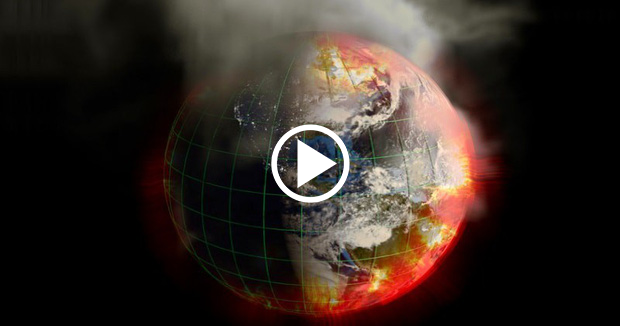Always find a way, it is the special and eternal thing of so called “life”.
You might find it hard to believe, but let’s take a look at the history of Earth’s development. At least, the only habitable planet in the universe to date has experienced 5 mass extinctions, occurring in the CreCret, Triassic – Jurassic, Permian – Triat, Devonian, and Ordovician – Silurian periods. .
And even now the planet is also in the sixth mass extinction event – the Anthropocene. But the Earth will stay green. At the very least, it will be greener for the next billion years, even if that eternity does not include humanity in it.
Three disasters have the capacity to completely change the surface of the Earth
In fact, destroying life on Earth as we know it is not too complicated. There are 3 ways to do this.
First, it’s a meteorite. Our Earth experienced this in the Cretaceous. Assuming there is also an asteroid now in Earth orbit, what will happen?
Of course, it will dive with tremendous speed and crash into Earth, taking the Earth’s crust away. The amount of dust thrown into the air will be thick enough to block all sunlight. Without the heat of the sun, the entire Earth would freeze for a long time.
Second, it’s a supernova – when a star dies and explodes – that occurs right next to Earth. The heat from such an explosion can reach 1044J, enough to turn anything nearby into flames.
And the final catastrophe is the gamma-ray burst – also extremely energetic explosions, occurring simultaneously with the supernova. It’s also hot enough to scorch the earth, boil the oceans, destroy the ozone layer and create acid clouds that are destroying our blue planet.
But whatever happens, the Earth is absolutely unbreakable
Just a planet in the solar system, Earth is of course also susceptible to being hit by a planet in the same system. But rest assured. Even if hit by an asteroid 1,000 times the size of the one that destroyed the Cretaceous dinosaurs, Earth would not shatter.
In fact, the solar system also has only 19 asteroids which can be considered large. However, none of them have an orbit that coincides with that of Earth. The probability that the Earth will be affected is only 1 time in 100,000 in a billion years.
A close-up supernova or gamma-ray burst is unthinkable. Not to mention the nearest star, Proxima Centauri is also 4.25 light years from Earth. He’s too small to be a supernova.
Even if Proxima Centauri turns into a supernova, it will only increase the temperature of the ocean by about … 0.1 degree Celsius at best.
And life can’t go away
The truth is, if the Earth falls into any of the above three catastrophes, mankind will surely perish. Not only humans, but plants and animals, fungi, lichens, mosses … also have the same fate.
The peculiarity of a water bear is not its small size of only a few micrometers, nor its ugly and wrinkled appearance. What it is most powerful of is the ability to expel all water from the body when needed to preserve life.
All living things need water to survive, but water bears are different. Even though it is only an aquatic organism, when in critical condition it can clean water from its body and then go into hibernation.
In this state, the water bear can withstand temperature conditions of up to 150 degrees Celsius. Radiation, toxic solvents, freezing, even a vacuum environment … all of which are ineffective against the country’s bears.
One day the Sun explodes, burns the Earth, then goes out, this will be the last moment of this solar system. But before that, it was almost impossible to see the water bears disappear.
And most importantly, as long as an organism (in this case, a water bear) survives, some bacteria survive as well. Life will come back to life, although it may not be the same as before.
So if life has ever appeared anywhere beyond Earth, rest assured that it is still there. Always find a way, that’s the real nature of life.


